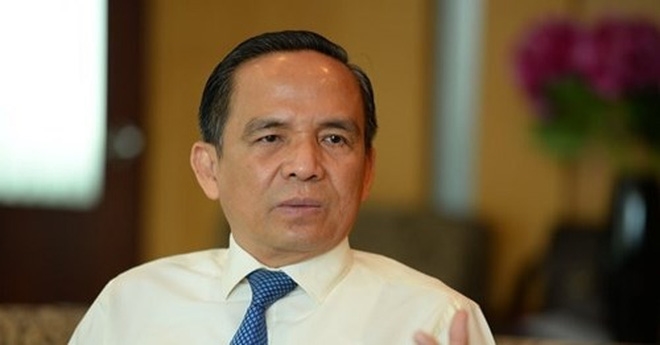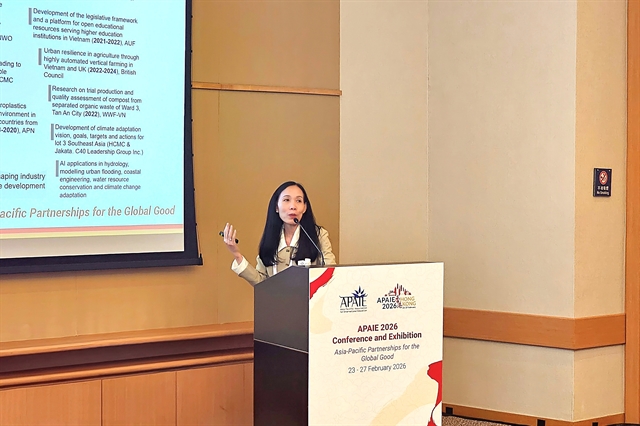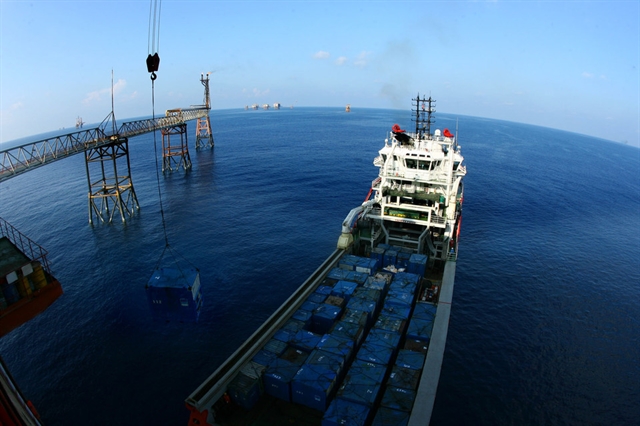 Economy
Economy

As the country’s economic hub, HCM City is where the action is for many industries, including property. Việt Nam News reporter Thu Ngân speaks with Lê Hoàng Châu, chairman of the HCM City Real Estate Association, about the city's property market.
 |
As the country’s economic hub, HCM City is where the action is for many industries, including property. Việt Nam News reporter Thu Ngân speaks with Lê Hoàng Châu, chairman of the HCM City Real Estate Association, about the city’s property market.
How is the HCM City real estate market evolving?
The HCM City property market is the most active in the whole country with intense competition.
After a long period of inaction, since the end of 2013 the real estate market has been recovering and is back on track.
The recovery can be traced to timely changes in policies by the Government and local authorities as well as the efforts of developers.
Since last year the property market has seen strong development in all districts and all segments -- social housing, apartments, luxury apartments and low-end apartments for lease.
Many housing projects were envisaged last year to take advantage of public infrastructure projects like the metro.
In 2015 the market size doubled over the previous year as 26,500 apartments were sold.
Around VNĐ140 trillion (US$6.4 billion) worth of credit flowed into the city property market last year, accounting for 12.3 per cent of all lending. This is higher than the national level of 10.3 per cent.
Last year the city saw $1.3 billion worth of foreign direct investments flow into the property sector, which ranked second in terms of FDI.
What are the shortcomings the market faces?
Despite significant development, the market continues to face many challenges.
Property prices are still too high compared to people’s incomes at around 20 times. In other countries it is only seven times.
Last year there was massive development in the luxury property segment, and prices increased by 5-15 per cent from 2014.
In this segment, there are an increasing number of secondary investors who buy luxury properties and re-sell them for profit. Last year the volume of such transactions surged three-fold and accounted for 15 per cent of all transactions.
Another shortcoming related to the inventories. The city now has 1,219 projects of which 11.2 per cent [equivalent to 137] have been suspended or investors lost their licence because of delay.
Construction cannot begin on 52 other projects due to lack of land clearance. Appropriate solutions are needed to enable developers to soon complete the projects to safeguard the interests of both developers and the society.
Another problem pertains to the disputes at apartments over management fees, private and common ownership, parking and management. These conflicts should be fixed soon since the trend of living in apartments is growing in big cities, including HCM City.
Where do you see the market headed this year and in the next few years? Which segments will develop strongly?
In the first five months of this year the market has seen a stagnation compared with the same period last year.
It was caused by some factors including the notary office refusing to notarise contracts for mortgaging future developments.
The draft amendments to circular No 36/2014/TT-NHNN limiting credit to the propety sector have also had an impact on the market.
Through our visits to constructions in the city, we believe that the HCM City property market’s development will not be less than in 2015.
The money will move to the social housing segment and small apartments priced at around VNĐ1 billion.
More funds will flow into industrial and tourism properties, service apartments and office-tel to grab the chances brought by integration, including the Trans-Pacific Partnership.
Since the beginning of this year many investors and investment funds have flocked to the city property market. This will continue.
Thanks to that, products will become diverse and management skills will improve. Prices will fall thanks to tough competition among developers who are under liquidity pressure.
The large inventories will foster mergers and acquisitions with appropriate policies.
What do you think are the weaknesses that developers should address at a time the country is integrating?
The biggest weakness is shortage of resources. Now the funds are coming mostly from bank credit and buyers. These sources are for the medium term only.
Secondly, they are not professional, especially in researching the market. This should be mitigated soon.
Developers have to understand what the market wants and needs to achieve sustainable development. But many companies have failed to do that.
Poor management is another shortcoming.
To overcome these weaknesses, developers should closely co-operate and set up business groups so that they can compete when the country integrates.— VNS




